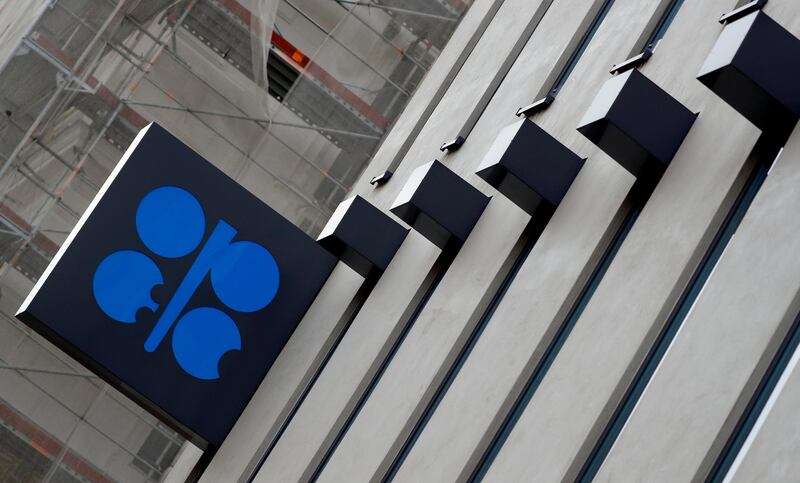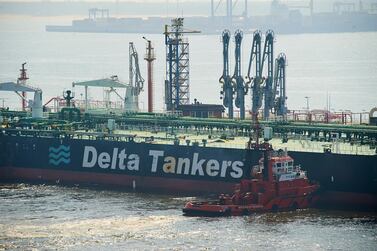Opec+ will convene in Jeddah on Friday for its technical committee meeting amid fresh oil supply uncertainties against a backdrop of escalating tensions in the waters off the UAE coast and attacks on two oil pumping stations in Saudi Arabia.
Saudi Arabia and Russia, who lead the alliance undertaking market corrections of 1.2 million barrels per day since the start of the year, will meet with five other members of their technical committee to review their pact.
Since meeting in Azerbaijan's capital of Baku in March, the supply and demand situation in the oil markets have changed drastically.
Oil prices, which had slumped towards the end of 2018, picked up pace with the Opec output curbs and on the back of a loss of production in Venezuela and Libya. Market uncertainties were heightened when US President Donald Trump cancelled waivers granted to Iran’s key oil buyers towards the end of April. Benchmark Brent spiked to $75 per barrel as the prospect of 1 million bpd of Iranian crude leaving the markets increased concerns about supply shortages.
Saudi Arabia and the UAE had pledged to raise output to offset any outages in the market, however the two producers were said to be weighing up their options carefully before promising further supply commitments.
Opec will likely decide over the coming three days whether to cancel the ongoing deal, that has already moved prices into the $60 to $70 per barrel bandwidth this year or boost supply to meet increasing demand over the summer.
In its latest report, Opec projected crude demand for the third quarter to be higher by 1.17 million bpd. To meet this increase, Opec may consider a supply boost at its next meeting.
In its latest oil market report, the International Energy Agency said Opec, especially its de facto leader Saudi Arabia, has considerable scope to step up production since the kingdom produced 500,000 bpd below allocation for April.
A more pressing concern for Opec is to assure markets that its spare capacity is available, particularly after two separate incidents involving key producers UAE and Saudi Arabia unsettled the markets.
Four tankers, of which two belonged to Saudi Aramco, suffered sabotage attacks off the coast of the UAE emirate of Fujairah last week, suffering minor damages. One of the Saudi tankers had been on its way to the kingdom's eastern Ras Tanura port to be loaded with crude destined for US.
This incident ended three weeks of bearishness in the crude market and pushed the price of Brent up by a dollar.
A day later, Aramco said two pumping stations along its east-west pipeline linking the oil-rich eastern province with the Red Sea facing Yanbu had been attacked by armed drones, which led to its temporary shutdown.
The incidents came at a sensitive time for the oil markets, where supply appears to be tightening.
Opec has so far remained mum about security concerns, with the Secretary General Mohammad Barkindo telling reporters in Abu Dhabi on Wednesday that the group wanted nothing but peace.
The meeting in Jeddah, which will take place without Iran will be closely watched in light of recent events.








